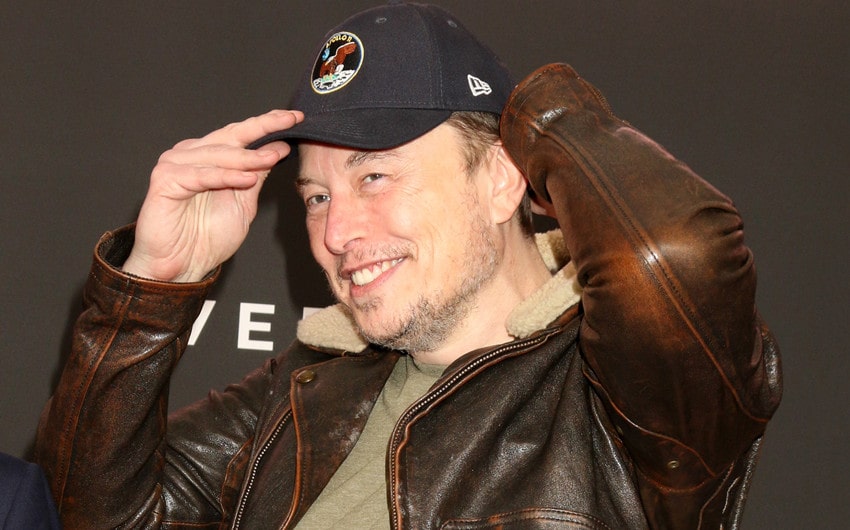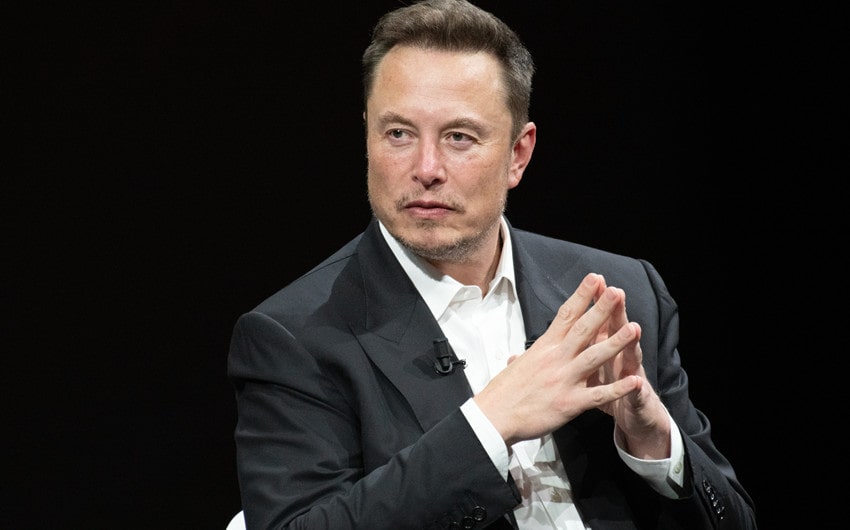Elon Musk’s IQ: A Deep Dive into His Intelligence
When people think of Elon Musk, words like “genius” and “visionary” often come to mind. From revolutionizing electric cars to launching rockets into space, it’s no wonder many are curious about how smart he really is. You’ve probably wondered too, what makes Musk so different? Is it raw intelligence or something more? While Elon Musk’s IQ has been a topic of speculation, his real strength might lie beyond just numbers.
Let’s take a closer look at his unique abilities and see if IQ is the real secret behind his incredible success.
Elon Musk’s Estimated IQ
There’s no official confirmation of Elon Musk’s IQ, as he has never publicly taken an IQ test. However, that hasn’t stopped people from speculating. Many estimates place his IQ around 155, which would put him in the same category as some of the greatest minds in history, like Albert Einstein and Stephen Hawking. But how accurate is this estimate?
The truth is, IQ scores alone don’t fully capture what makes someone like Musk so successful. He excels in fields ranging from physics and engineering to business and technology—areas that require more than just a high IQ score. Musk’s ability to understand complex systems, solve problems creatively, and push the boundaries of innovation suggests that his intelligence goes far beyond what a single number could express.
Additionally, Musk’s accomplishments at Tesla, SpaceX, Neuralink, and The Boring Company reveal that his talents lie in his visionary thinking and relentless pursuit of knowledge. Rather than relying on IQ alone, he continuously learns new subjects, tackles problems from different perspectives, and applies his knowledge in practical, world-changing ways. His combination of curiosity, ambition, and resilience has made him a trailblazer, whether or not his IQ is actually as high as people assume.
So while Elon Musk’s IQ is often speculated to be impressive, his real genius seems to come from a mix of intelligence, passion, and an unmatched work ethic that drives his groundbreaking achievements.

Musk’s Intelligence Beyond IQ
While many focus on IQ scores when discussing intelligence, Elon Musk demonstrates that true brilliance often extends far beyond a numerical value. Musk’s intelligence is multidimensional, and much of his success stems from his ability to apply knowledge across a wide range of fields, including engineering, physics, artificial intelligence, and economics. His capacity to approach problems from different angles and quickly grasp complex concepts has set him apart as a true innovator.
Musk’s ventures, from Tesla’s electric vehicles to SpaceX’s groundbreaking achievements in space exploration, highlight his ability to bridge technical expertise with bold vision. Rather than being limited by formal education or experience in one specific area, Musk continuously pushes himself to understand new technologies and fields, whether it’s sustainable energy, space travel, or brain-computer interfaces. He often takes on seemingly impossible challenges and finds innovative solutions by connecting ideas that might not seem related at first glance.
Moreover, Musk’s intelligence lies in his capacity to identify inefficiencies and turn them into opportunities for improvement. He’s not just a thinker—he’s a doer, which makes his intelligence highly practical.
While IQ can measure problem-solving skills and logic, Musk’s real-world impact demonstrates that his brilliance comes from his ability to envision the future and actively work toward creating it. His ability to translate ideas into tangible results is a hallmark of his success, and it’s a trait that goes far beyond what any IQ test can measure.
The Role of Hard Work and Curiosity
Elon Musk’s success isn’t solely about raw intelligence—hard work and curiosity play just as critical a role, if not more. Musk is known for his intense work ethic, often putting in 80 to 100-hour work weeks. This relentless dedication allows him to immerse himself in his projects, making progress at an astonishing pace.
He once said, “If other people are putting in 40-hour work weeks and you’re putting in 100-hour work weeks, you will achieve in four months what it takes them a year to achieve.” It’s this mindset that has driven his ventures forward and made him one of the most prolific innovators of our time.
But hard work alone doesn’t explain Musk’s success—his insatiable curiosity does. Musk is constantly seeking to learn more, asking questions, and digging deeper into subjects that pique his interest. He’s a lifelong learner, studying areas far beyond his initial fields of knowledge.
For example, he didn’t start as a rocket scientist, but his curiosity about space led him to learn the fundamentals of rocket science and eventually launch SpaceX. Similarly, his interests in energy and transportation inspired Tesla, and his curiosity about the future of human-computer interaction sparked Neuralink.
Musk’s curiosity also drives him to look at the world through a different lens. Instead of accepting things as they are, he constantly asks, “Why not?” This attitude allows him to think outside the box, challenge conventional wisdom, and take risks where others might hesitate. His curiosity fuels his creativity, helping him find novel solutions to complex problems and turn ambitious ideas into reality.
In many ways, Musk’s hard work and curiosity have proven to be more valuable than traditional intelligence. They allow him to continually push boundaries, tackle massive challenges, and inspire others to think bigger. While IQ can measure how well someone solves a problem, Musk’s curiosity and work ethic ensure that he never stops asking new questions or finding new problems to solve.
Elon Musk vs. Traditional Genius
When people think of genius, the image that often comes to mind is of someone like Albert Einstein or Leonardo da Vinci—individuals who excel in a particular field, be it theoretical physics or art and science. Elon Musk, however, doesn’t quite fit the traditional mold of a genius, yet his impact on the world has been nothing short of revolutionary.
Unlike many historical geniuses who specialized in one area, Musk has demonstrated his intelligence across multiple industries, including automotive engineering, space exploration, renewable energy, and even neurotechnology.
Traditional genius is often characterized by deep, specialized knowledge in one area, but Musk’s brilliance lies in his ability to think across disciplines. For example, at SpaceX, Musk had to quickly understand the complexities of rocket science, even though he didn’t have formal training in aerospace engineering.
Instead of relying on a narrow expertise, he learned what was necessary and combined it with his vision to make space exploration more affordable and feasible. Similarly, at Tesla, Musk’s understanding of both engineering and business allowed him to disrupt the automotive industry with electric vehicles and sustainable energy solutions.
What makes Musk’s intelligence unique compared to the “traditional genius” is his focus on practicality and execution. While geniuses like Einstein may have spent their lives exploring theoretical concepts, Musk is a visionary who also has the drive to bring his ideas to life. He blends creative thinking with hands-on problem-solving, constantly pushing the boundaries of what’s possible.
Musk doesn’t just think about big ideas; he builds companies, products, and technologies that have real-world impact. This makes his genius practical, adaptable, and able to thrive in complex, fast-changing environments.
In essence, Musk represents a modern type of genius—one that not only excels in thinking but in executing at scale. He challenges the traditional notion of genius by proving that intelligence is not just about specialization or theoretical work. It’s about the ability to connect different domains, take calculated risks, and drive innovation forward. While Musk may not fit the classic genius archetype, his versatility, ambition, and determination make him one of the most influential and impactful thinkers of our time.
Does IQ Really Matter for Success?
IQ has long been seen as a benchmark for intelligence, but when it comes to success, especially in the case of someone like Elon Musk, IQ may not be the most important factor. While a high IQ can indicate strong problem-solving skills and logical thinking, success often depends on more than just intellectual capacity. Musk’s journey shows that qualities like resilience, work ethic, creativity, and an ability to take risks play a much larger role in achieving success than IQ alone.
Musk’s success isn’t just about raw brainpower—it’s about his relentless drive to achieve his goals, even in the face of overwhelming obstacles. He’s known for his willingness to take huge personal and financial risks to bring his vision to life.
When he invested his own money to save Tesla and SpaceX from bankruptcy, it wasn’t because of his IQ—it was his belief in his mission and his perseverance that made the difference. Musk has failed many times along the way, but his ability to keep pushing forward, learning from his mistakes, and adapting to challenges is what sets him apart.
In addition, Musk’s creativity and vision are equally important components of his success. He doesn’t just follow established rules—he rethinks entire industries. For instance, when traditional car manufacturers were skeptical of electric vehicles, Musk doubled down on his belief that electric cars were the future, pushing Tesla to the forefront of innovation.
Similarly, when many saw space exploration as too costly or impractical, Musk envisioned reusable rockets to make space travel more accessible. This ability to see opportunities where others see limitations is a hallmark of his success.
Moreover, emotional intelligence (EQ) plays a significant role in success, especially for someone in Musk’s position. Leading companies, managing teams, and inspiring others require not just intellectual intelligence, but the ability to connect with people, communicate a vision, and rally a team behind a shared goal. Musk’s leadership style, while sometimes controversial, demonstrates his ability to inspire loyalty and motivate others to work toward ambitious goals.
In the end, while IQ may give a rough estimate of someone’s problem-solving ability, it’s clear that qualities like persistence, creativity, vision, and emotional intelligence are far more important for achieving success.
Musk’s story shows that intelligence alone isn’t enough—what really matters is how you apply it and the determination to keep going, no matter the odds. So, while Elon Musk’s IQ might spark curiosity, his real genius lies in his ability to dream big and turn those dreams into reality through sheer effort, creativity, and resilience.







